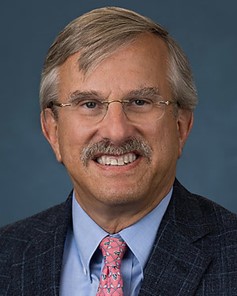Research Staff
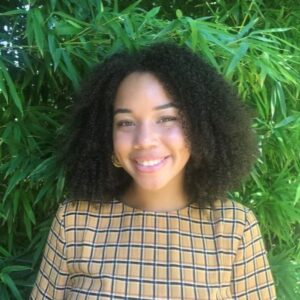
Annice Brown, MHS—Senior Research Program Coordinator II
Annice Brown earned a Bachelor of Science in Arts in Neuroscience from the University of Texas at Austin and a Master of Health Science from Johns Hopkins University. Engaged in both clinical and nonclinical research, she has explored the intersections of physical and behavioral health, with a particular emphasis on substance use and mental health treatment access and outcomes.

Carter Watts, BS—Research Program Manager
Carter Watts received a Bachelors of Science in Public Health from the University of South Carolina. She is interested in examining models of care for people living with opioid use disorder and other co-occurring mental health conditions and/or infectious diseases, such as hepatitis C.

Catherine Wren, MHA—Research Program Coordinator
Catherine Wren received a Master's in Healthcare Administration from Trevecca Nazarene University. She is coordinating the Rapid HCV study providing Hepatitis C care at an Opioid Treatment Program for those living with a substance use disorder.

Grace Lee, BS—Research Program Coordinator
Grace Lee received a Bachelors of Arts in Psychology from the Johns Hopkins University. She has worked on studies that seek to understand and address factors that contribute to mental health disparities among marginalized populations.
Maria Latimer, MPH—Sr. Research Program Coordinator
Maria Latimer received her BA and MPH from the University of Virginia. She is passionate about connecting vulnerable and underserved populations with vital healthcare services, especially for infectious diseases and mental health disorders.
Sharon Kelly, PhD—Research Analyst
Dr. Kelly holds a doctorate in Sociology and Criminal Justice from American University. She has extensive experience conducting clinical research studies that evaluate novel strategies for improving treatment and healthcare delivery for individuals with opioid use disorder (OUD) in the community and correctional settings. Her research interests include treatment of OUD in people with HIV, patient-centered care, and OUD treatment in criminal justice populations and correctional settings.

Meredith Gamble, Ph.D.—Sr. Research Program Coordinator
Meredith received a B.S. in Psychology from Rochester Institute of Technology and a Ph.D. in Behavioral Neuroscience from Binghamton University, where her research training focused on the intersection between reproductive health and opioid use disorder. She is passionate about continuing in this field and helping to promote the health and well-being of people affected by substance use disorders, particularly through harm reduction and mental health supports.
Peer Coaches
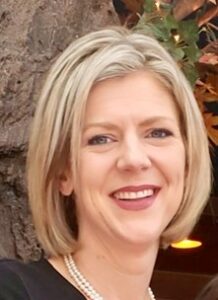
Courtney Weglein—Peer Coach
Courtney Weglein is a certified peer recovery specialist that primarily works with patients who are transitioning from an inpatient facility into the community. Her duties include helping patients navigate systems of care, connecting them to resources, identifying barriers that prevent progress, and supporting them in any way she can. She is passionate about her work because she uses her lived experience to assist others and offer hope to people who are just beginning their journey on their recovery path.

Hope Thomas Devs—ADT Counselor
Hope Thomas Devs is the alcohol and drug trainee counselor with the RESTORE program at the Bartlett Specialty Clinic at Johns Hopkins. To her patients with substance use disorder, Hope sees herself as an example of someone with shared experience, now in recovery. She finds it rewarding to work with patients referred to the program, who are struggling with active addiction, as they participate in the process of recovery.
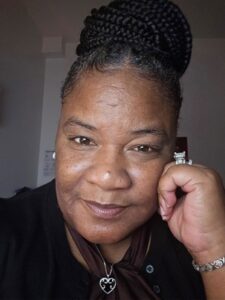
Marshiek Long—Peer Coach
Marshiek Long is a certified community health specialist/peer support coach. It is an honor she wears proudly and cautiously. She does not take lightly helping people navigate their uncertainties about the journey to recovery and wellness. She is all too familiar with the fear of starting this process.
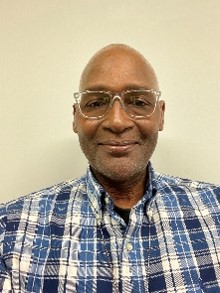
Warren Lee—Peer Coach
Warren Lee is a peer recovery coach in long-term recovery who acts as the outreach specialist with the RESTORE program at the Bartlett Specialty Clinic at Johns Hopkins. Because patients face barriers in navigating healthcare, Warren plays a role as a liaison between the patients and providers. He finds it rewarding to share his experience, strengths, and hopes with the patients. He enjoys doing regular follow-ups to see the patient’s progress and letting them know he has their back.

Notes from the rest of the Peer Team:
She loves working as a peer coach because she gets a chance to meet individuals where they are and help guide them on their personal path to recovery.
She is a person with her own lived experience with mental health and substance use. She has journeyed her way from illness to wellness, using different pathways to recovery.
Postdoctoral Research Fellows
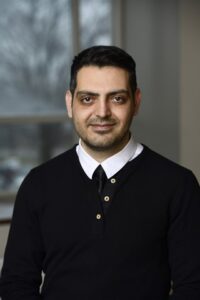
Hamidreza Karimi-Sari, MD—Post-Doctoral Research Fellow
Hamidreza Karimi-Sari, also known as Hamid, is an international medical graduate (IMG) from Iran. He has actively contributed to several hepatitis C (HCV) research studies, with a particular emphasis on people who use drugs. Hamid is currently involved in the RAPID-HCV study at two opioid treatment programs (OTPs) in Baltimore city. He also serves on the editorial boards of two scientific journals, PLOS One and Hepatitis Monthly.
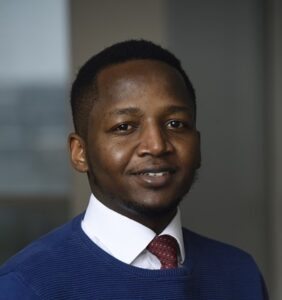
Tarfa Verinumbe, MBBS, MPH—Post-Doctoral Research Fellow
Tarfa completed his medical training in Nigeria and received a Master of Public Health from the Johns Hopkins Bloomberg School of Public Health. Prior to joining the team, he implemented PEPFAR-funded HIV/AIDS projects in Nigeria and currently his research is centered around the use of implementation science approaches to maximize effectiveness of HIV care in the US.
Alumni

Janiya Cherry, BS—Student Intern
Janiya Cherry is a Post-baccalaureate Scholar in the Post-baccalaureate Research Education program at Johns Hopkins School of Medicine. She is interested in understanding health disparities that specifically affect adolescents from marginalized and underserved populations. During her internship with the Center for Substance Use & ID Care Integration in 2022, she gained valuable experience by shadowing research coordinators, observing baseline interviews, and screening for participants. She also had the opportunity to present her research that examined the difference between men and women enrolling in a low-threshold substance use disorder program integrated into an infectious disease care setting under the mentorship of the center's research fellows and Dr. Seun Falade-Nwulia.
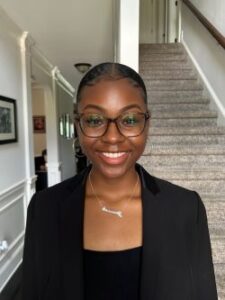
Jedeiah Dickerson—Student Intern
Jedeiah Dickerson is pursuing her B.S. in biological sciences at Spelman College on a full-ride scholarship. As a third-year pre-medical honors student, she is passionate about advancing health equity within medicine, intending to serve underrepresented populations within infectious disease. During her internship at the JH Center for Substance Use & Infectious Disease in 2023, Ms. Dickerson studied the prevalence of trauma among a predominantly black population of people living with HIV. This experience was transformative for her journey to medicine, as it ignited in her passion for serving in infectious diseases while gaining valuable skills in clinical research, data analysis, interpretation, and application.

Marisa Felsher, PhD—Post-Doctoral Research Fellow
Marisa Felsher is a Director of Outcomes Research in Merck and a Lecturer at Thomas Jefferson University's College of Population Health. Her research focuses on advancing knowledge of the burden of human papillomavirus (HPV) in men and designing and evaluating interventions to increase access to HPV vaccination. During her post-doctoral fellowship at the Center for Substance Use and ID Care Integration in 2020, she gained valuable experience in social network analysis, multi-disciplinary collaboration and Implementation Science under the strong mentorship of Oluwaseun Falade-Nwulia. Marisa is passionate about integrating evidence-based research into regular use within programs and policies, and her fellowship in the Center helped her to cultivate the skills to achieve that.

Omolegho Momoh, M.D.—Student Intern
Omolegho Momoh is currently finishing her final year as an Internal Medicine resident at Montefiore New Rochelle Hospital; she will be starting her fellowship in Hematology and Oncology at the University of North Carolina, Chapel Hill, in the summer of 2024. She is passionate about health equity and addressing healthcare disparities using multidisciplinary approaches. During her internship with the Center for Substance Use & ID Care Integration in 2020, she worked under the mentorship of Dr. Falade-Nwulia to explore linkage to HCV care among people who use drugs using a peer mentorship model. Their findings resulted in a peer-reviewed publication in the Journal of Drug and Alcohol Dependence.

Sean McCormick, JD—Research Program Coordinator
Sean McCormick is a public health attorney and advocate, who has focused on addressing the overdose and related health crises through evidence-based policy and legal solutions. His work has challenged punitive, criminalization-based strategies and has elevated equitable approaches that recognize the dignity of people living with disabilities and other underrepresented communities. While working with Dr. Falade-Nwulia and the Center team, Sean developed critical skills in procuring funding, coordinating the regulatory approval process, designing and implementing data collection strategies, analyzing and interpreting data, and publishing findings.

Zoey Duan—NIDA Summer Research Intern
Zoey Duan (she/her) is a current sophomore at Yale University, studying Global Affairs and Global Health. As an aspiring scholar and advocate of global health, she is curious about the development, economics, and management of healthcare. During her 2023 NIDA Summer Research internship with the Center for Substance Use & ID Care Integration, she learned valuable skills in conducting clinical research, interacting with patients, and analyzing scientific literature. She was also exposed to topics in health economics and implementation science –– fields that she now hopes to continue exploring and researching. For her final project, she conducted a literature review of peer-based behavioral intervention across SUD treatment settings under the mentorship of the Center’s research fellows and participated at the JHU C.A.R.E.S. Research Symposium.





